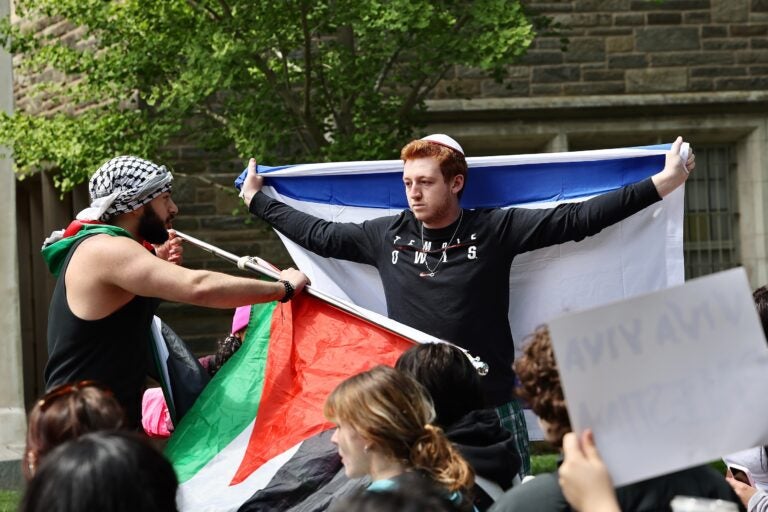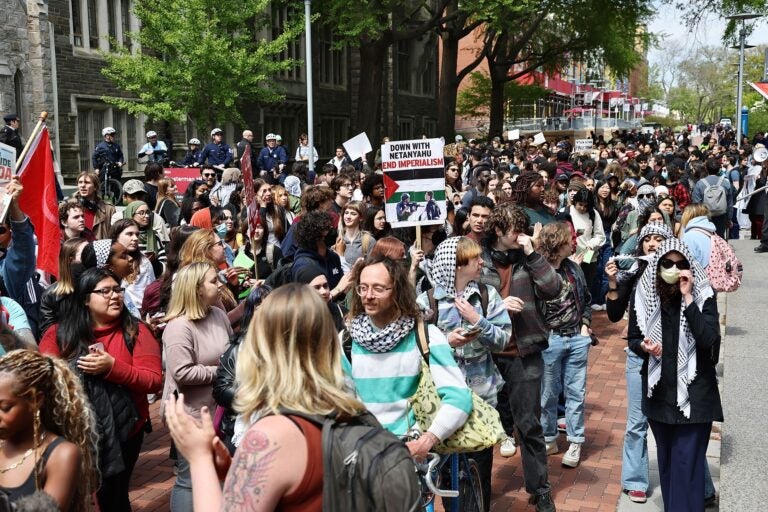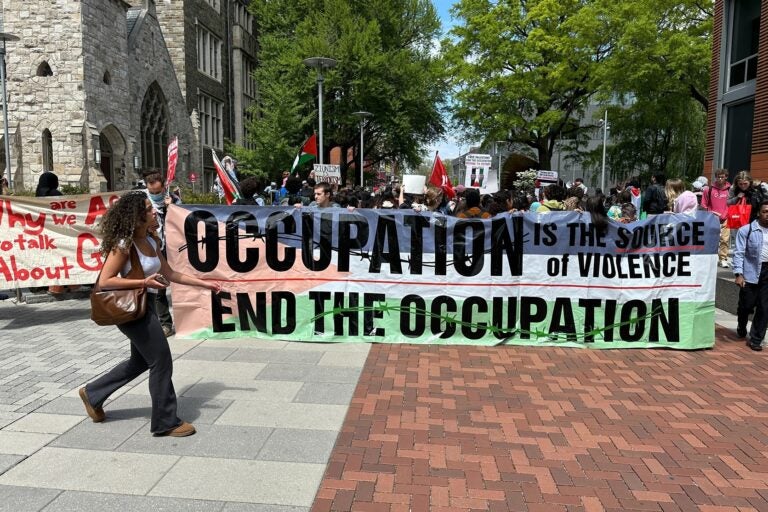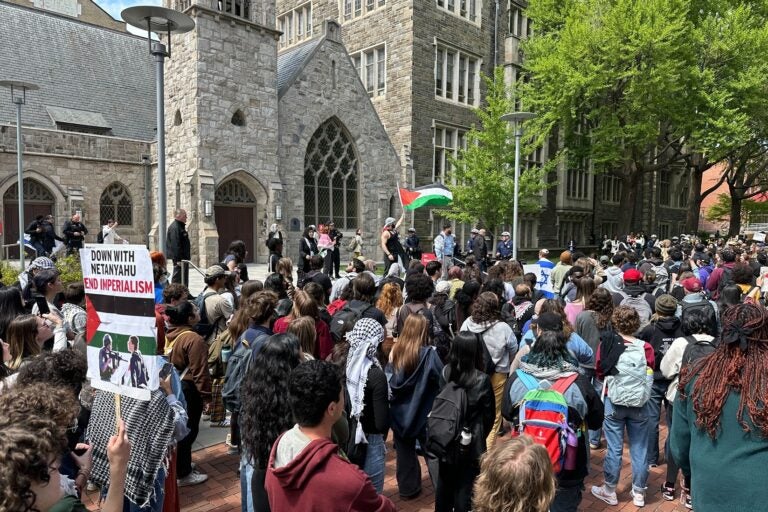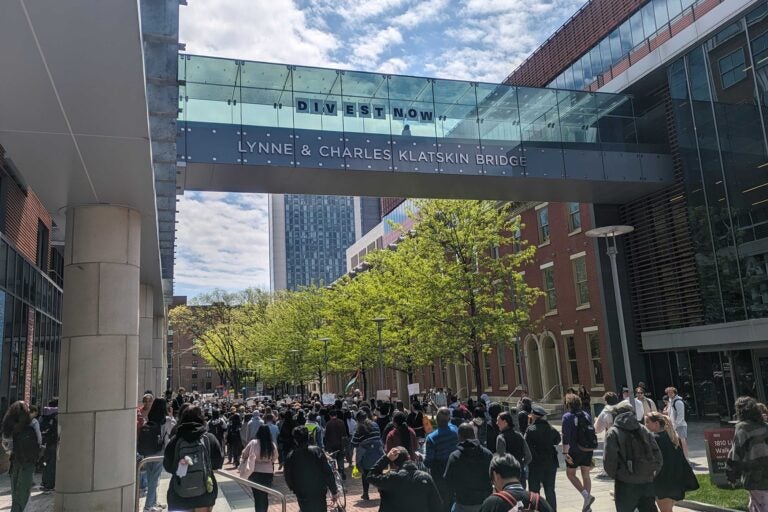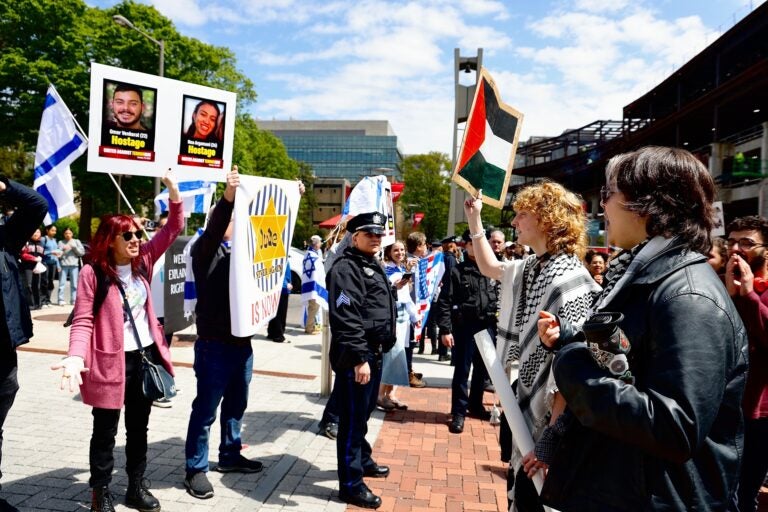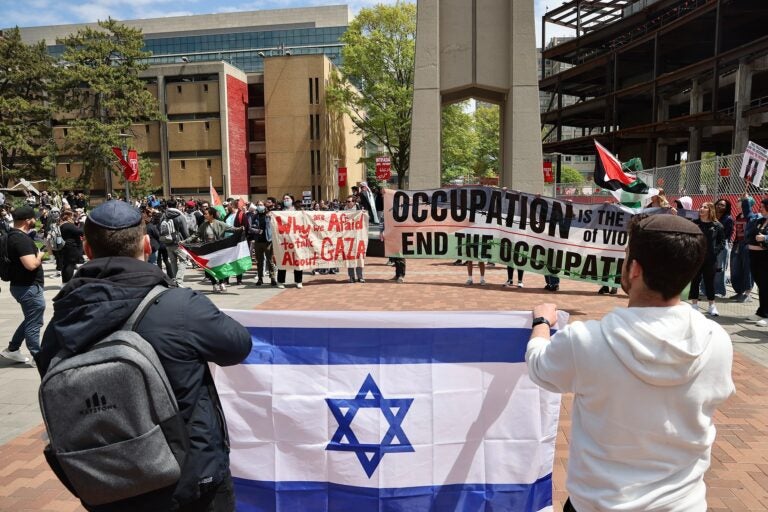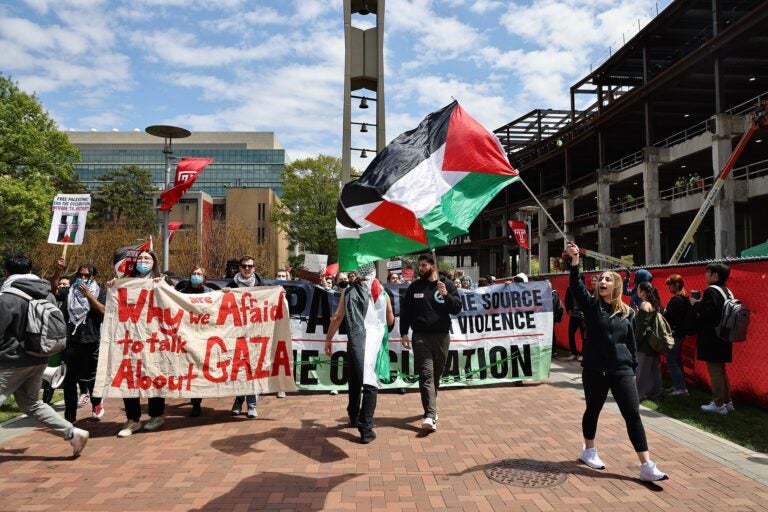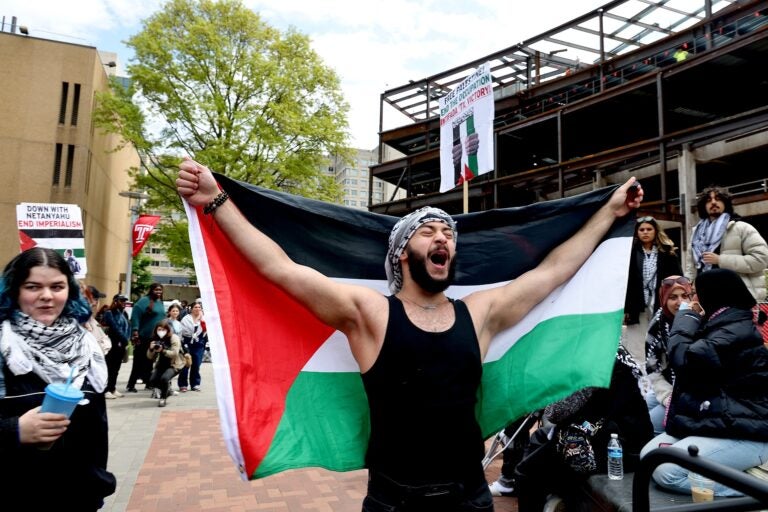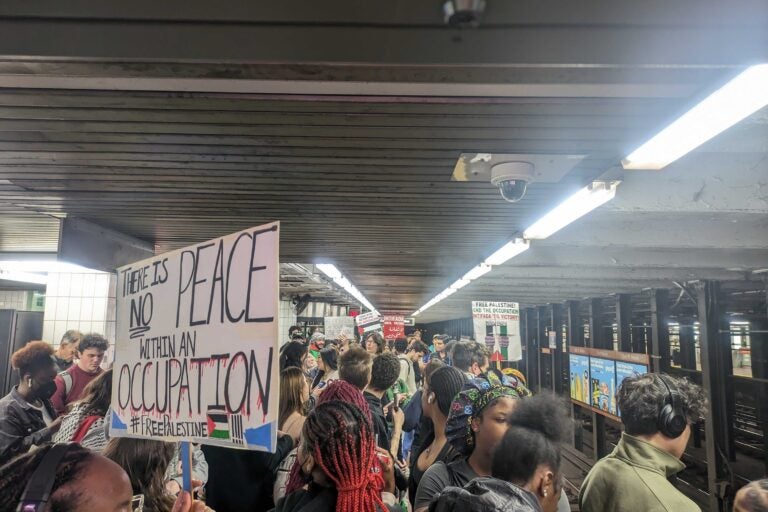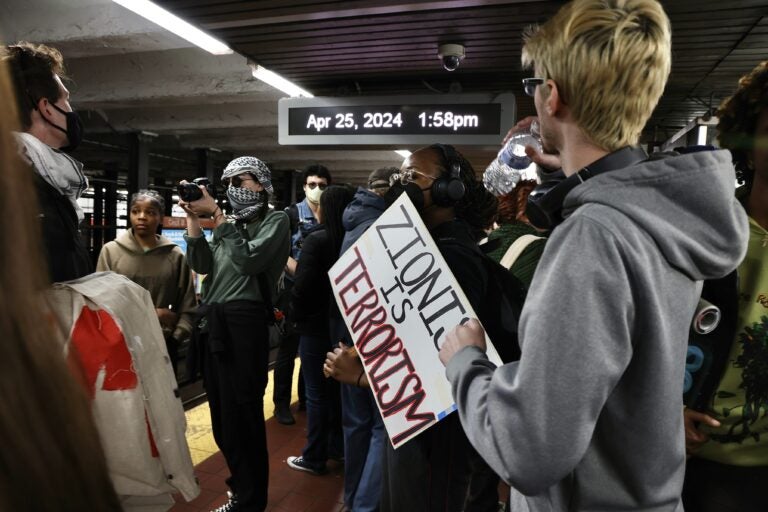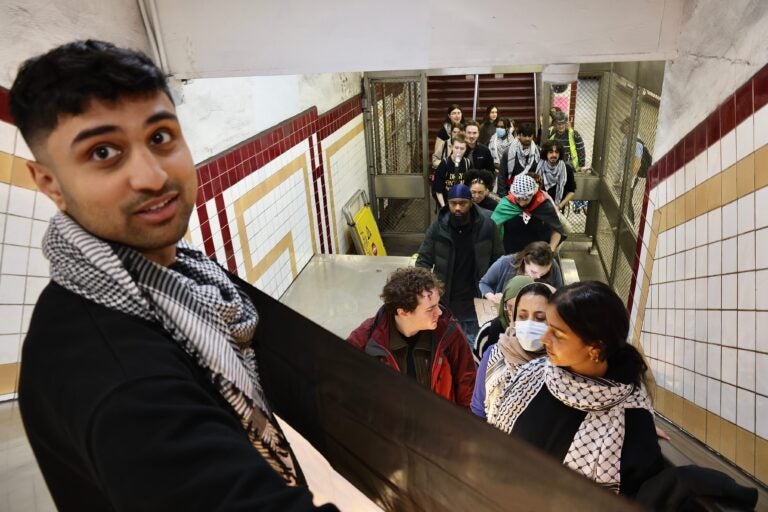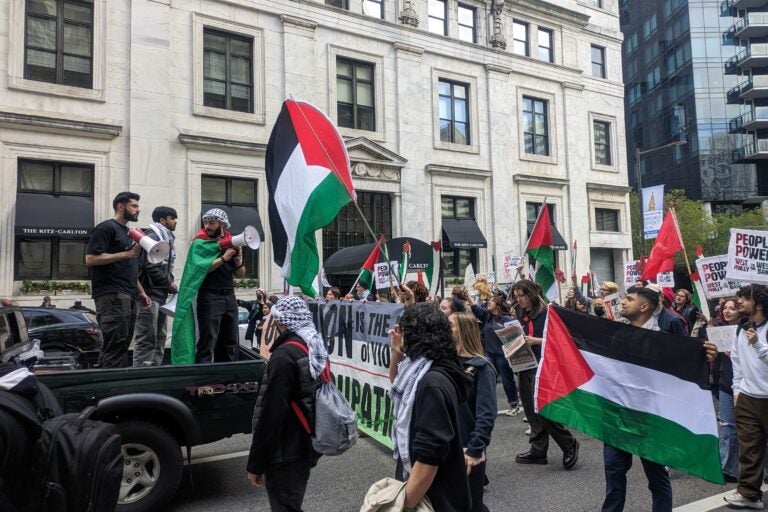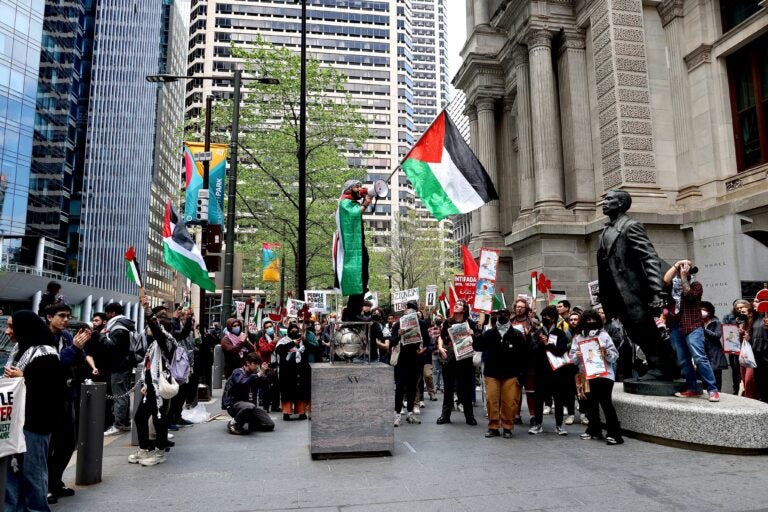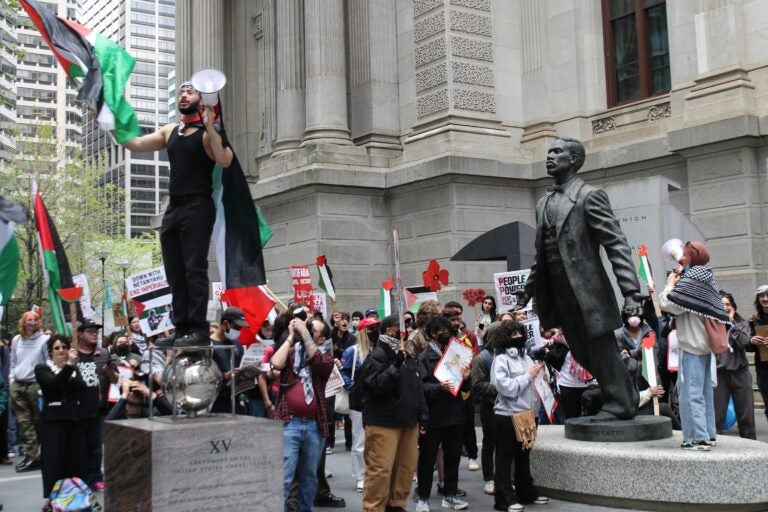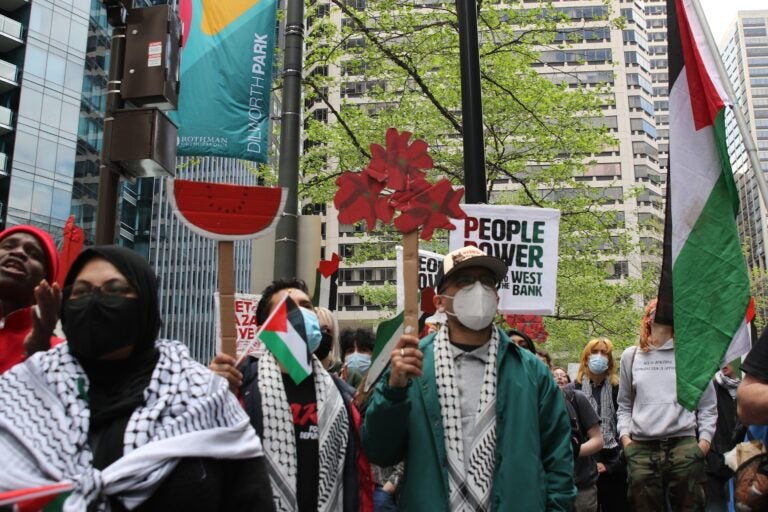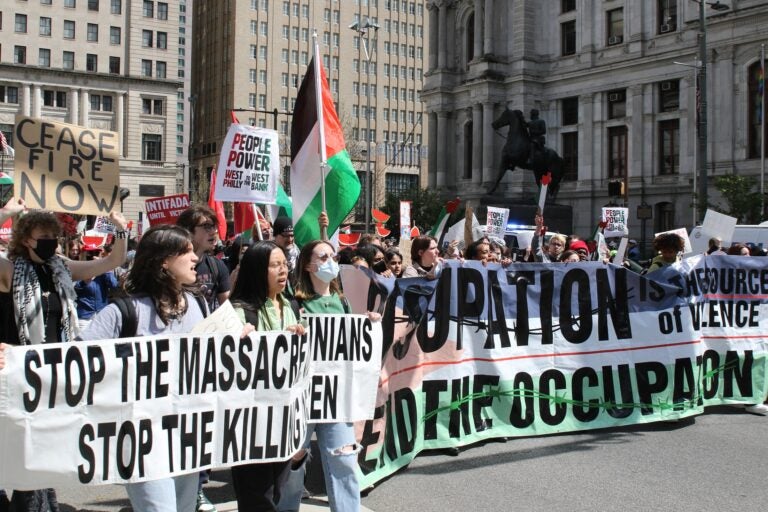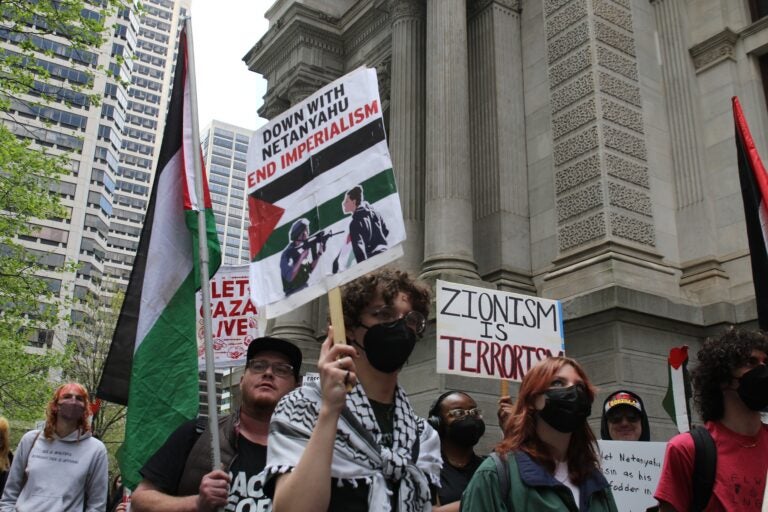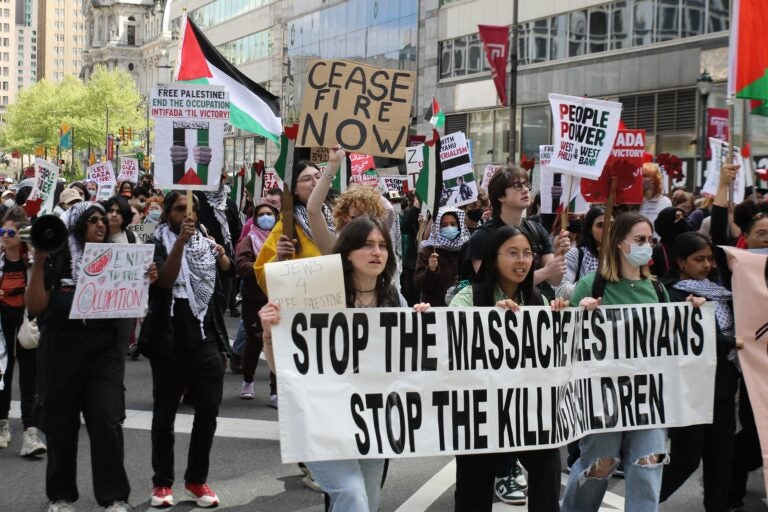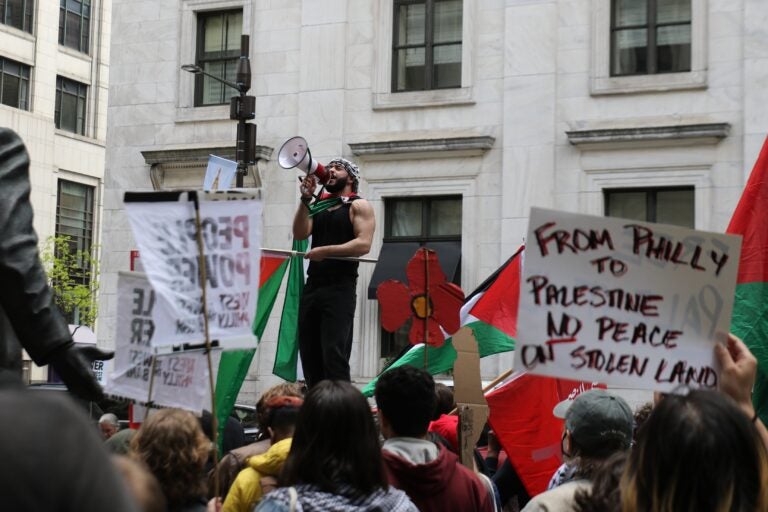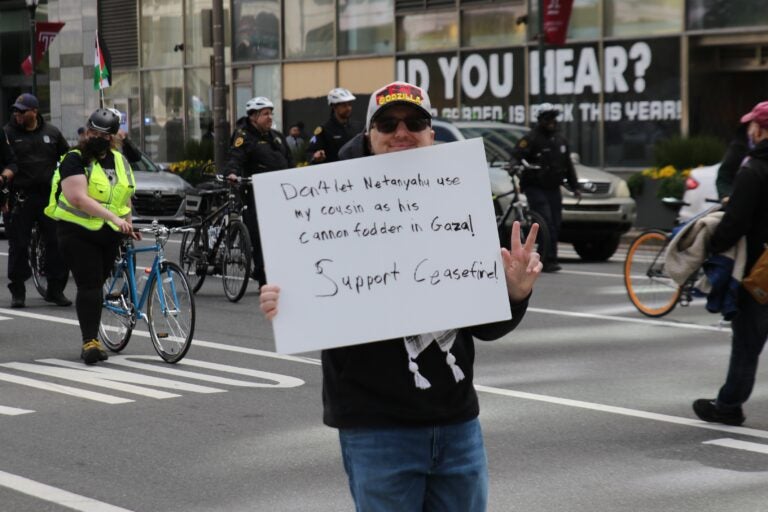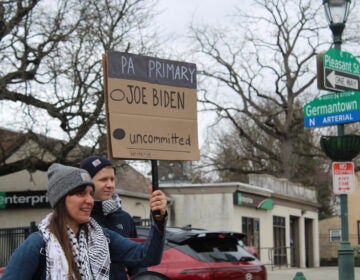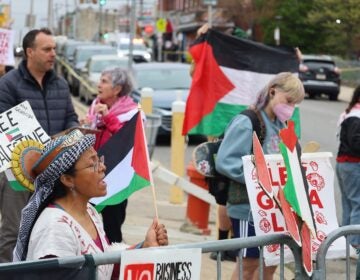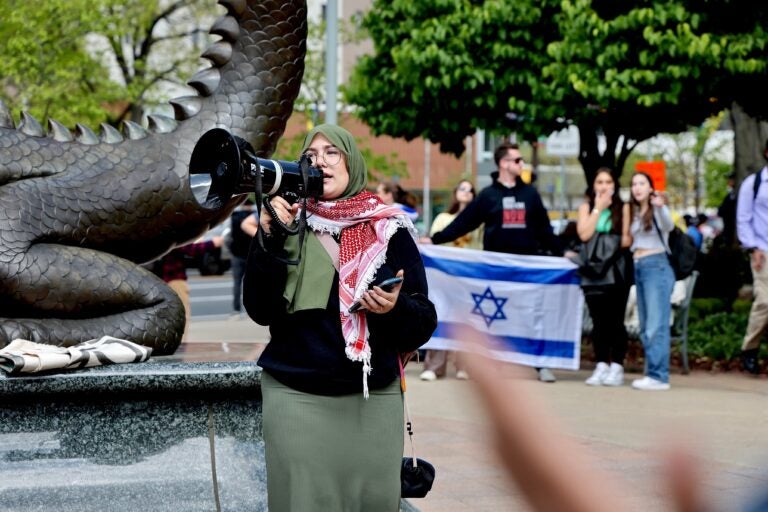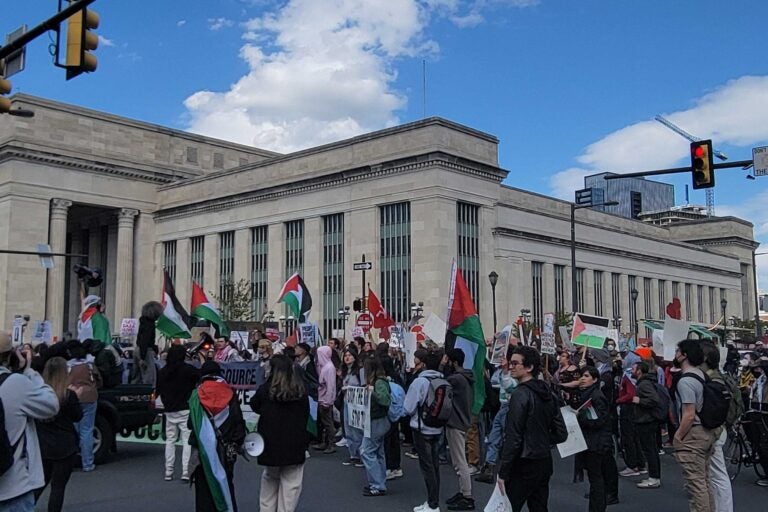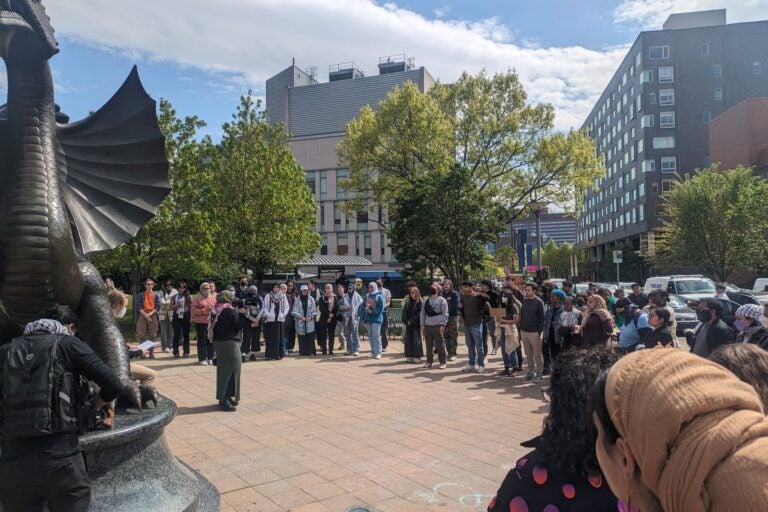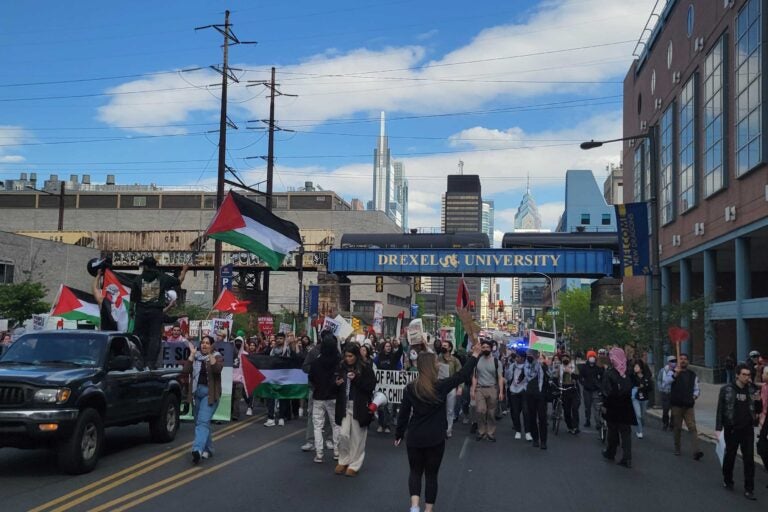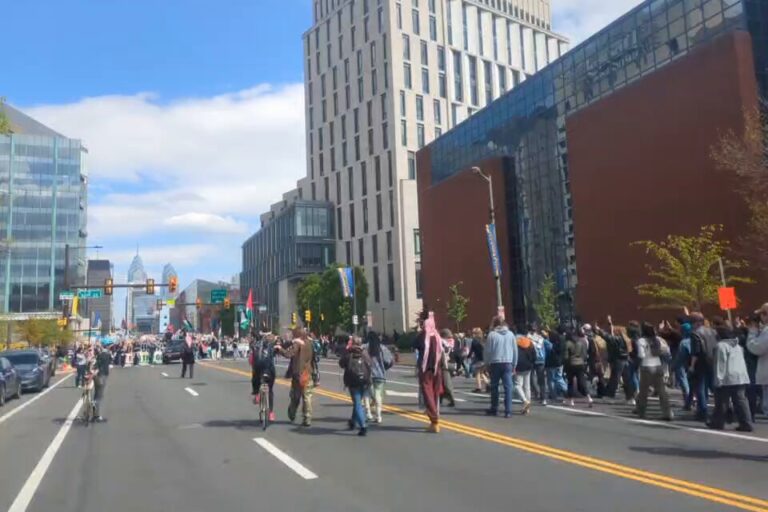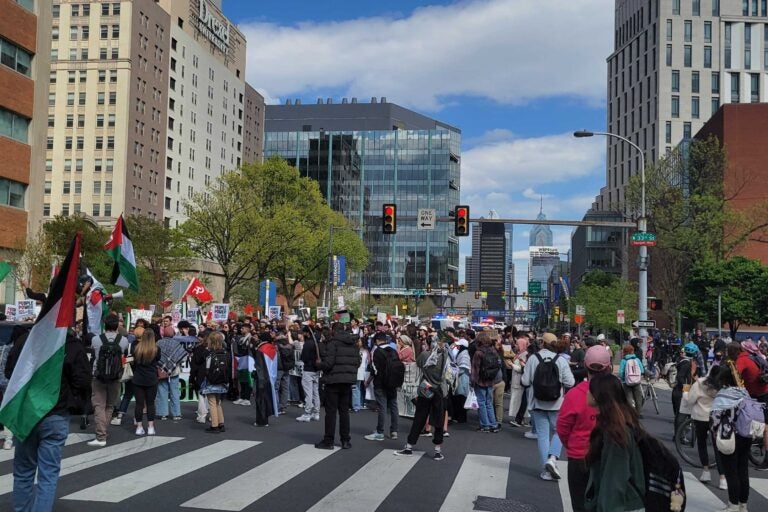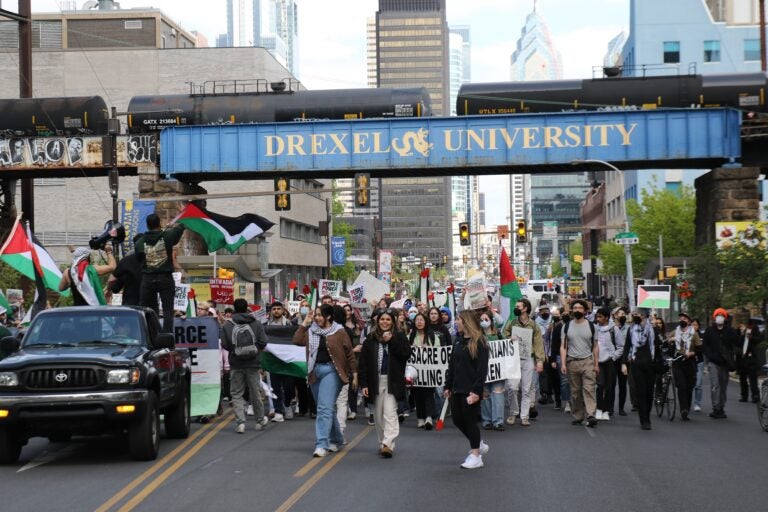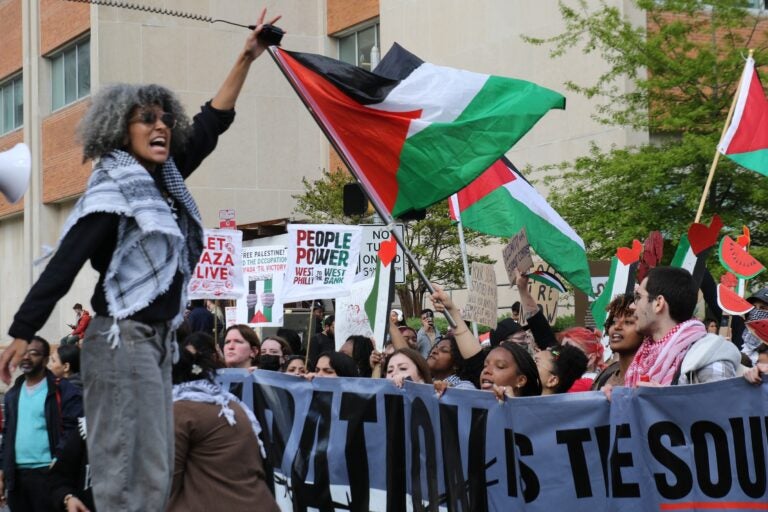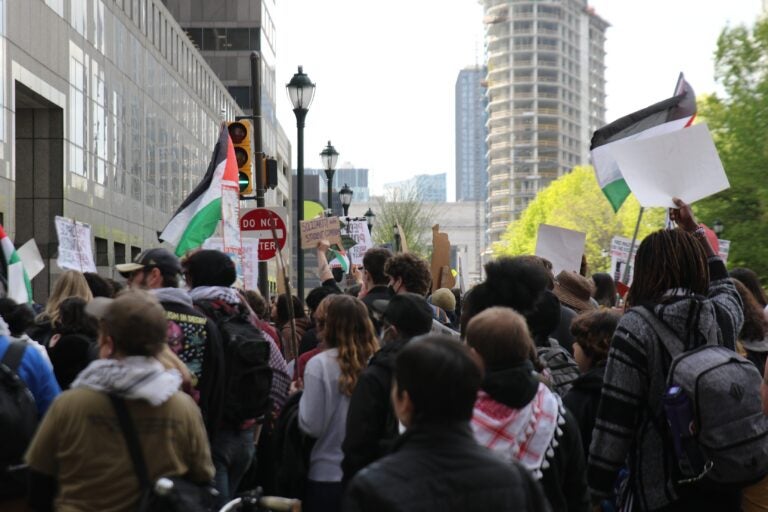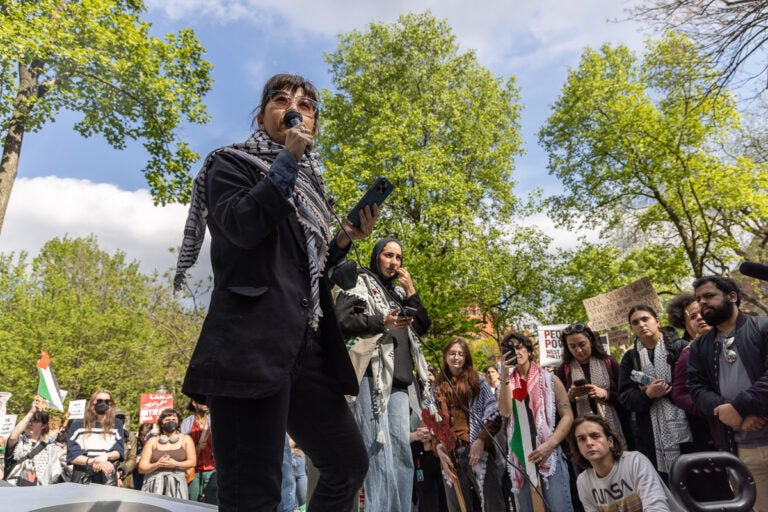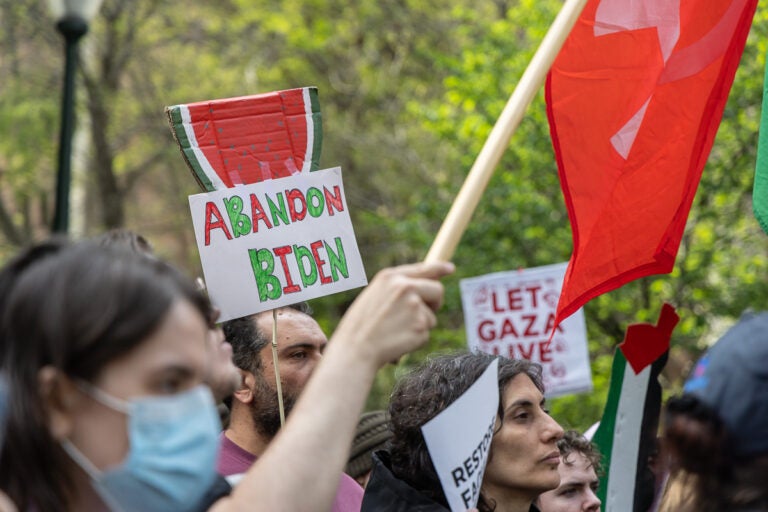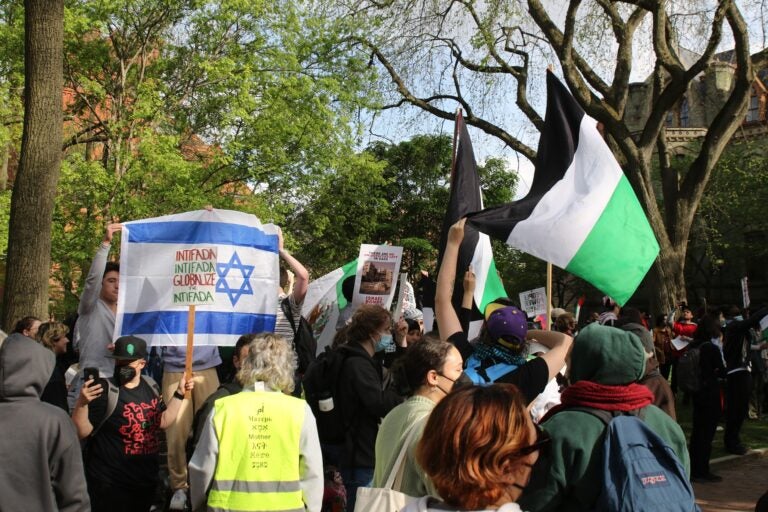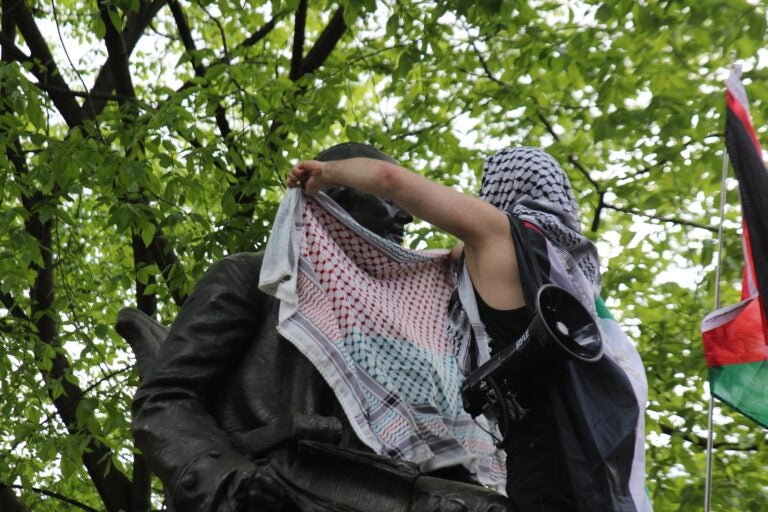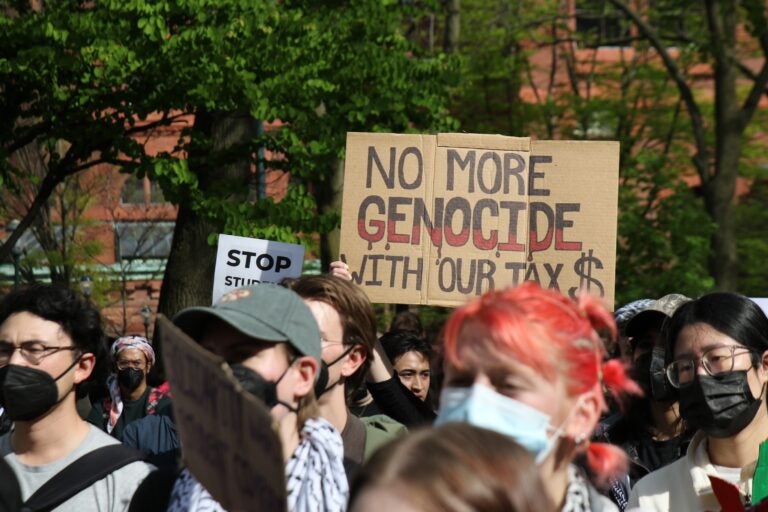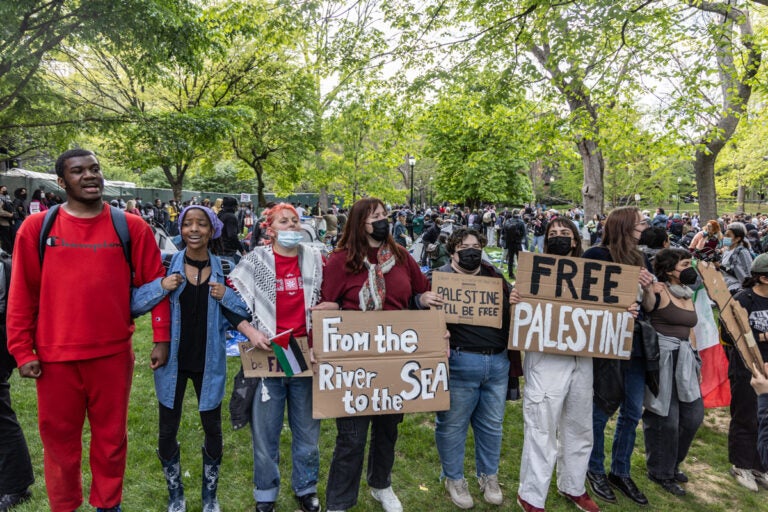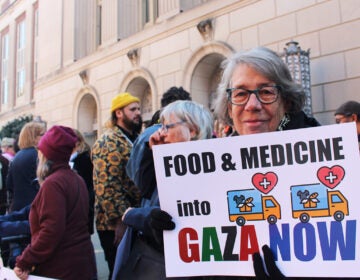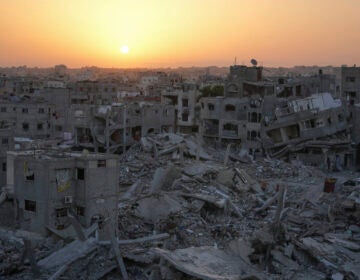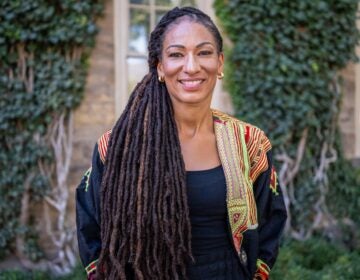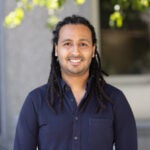Philly university students join nationwide call for ceasefire in Gaza; encampment established at Penn
Hundreds marched through Center City on Thursday, stopping at Philly campuses and City Hall, calling for a permanent ceasefire and demanding local divestment from Israel.
Listen 1:48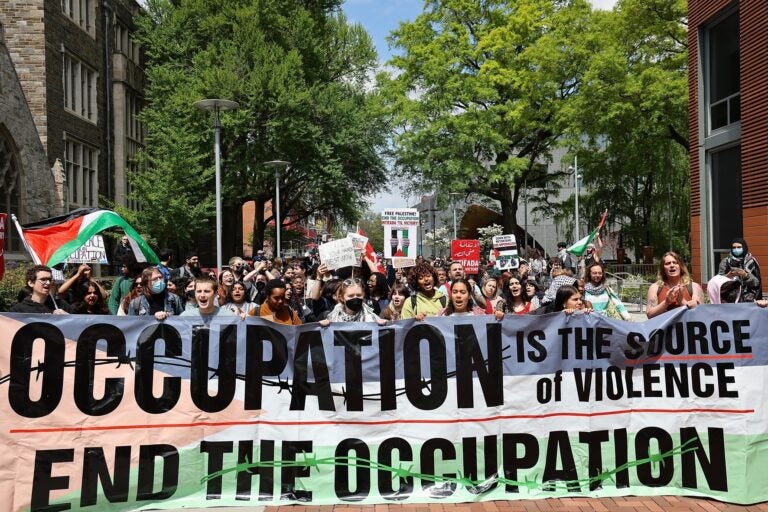
Hundreds of students march through Temple's campus protesting the war in Palestine. (Emma Lee/WHYY)
Campus Gaza protests: What to know
- Student protests over the Israel-Hamas war have swept campuses across the U.S., including in the Philly region
- Many are calling for their institutions to divest from companies with ties to Israel. Here’s a look at what that would entail
- Amid the unrest, the U.S. House passed a bill that would expand the definition of antisemitism
- President Biden says the protests have not prompted him to rethink his Mideast policies, adding “order must prevail”
- Here’s what’s happening related to the war in Gaza on Philly, Jersey and Delaware campuses
In demonstrations throughout the Philadelphia region on Thursday, pro-Palestinian protesters called for a permanent ceasefire in the Israel-Hamas war and voiced support for student-led protests across the U.S.
Demonstrations took place at the University of Pennsylvania, Drexel, Temple and City Hall — attracting hundreds of participants, which included supporters of Israel and Palestine.
Multiple universities in the Delaware Valley region have seen protests in recent days. Earlier Thursday, a demonstration at Princeton University resulted in the arrest of two graduate students.
At Swarthmore College, students are occupying the lawn outside Parrish Hall. On Wednesday, hundreds gathered at the University of Delaware to show support for a ceasefire in Gaza and Columbia University’s chapter of Students for Justice in Palestine.
In addition to an immediate ceasefire, students have called for their higher education institutions to divest from companies with ties to the Israeli government and an academic boycott of the Israeli government.
Penn students establish encampment
Roughly a dozen tents have been spread out across the lawn outside Penn’s College Hall. Students on Thursday said they were prepared to sleep outside through the weekend.
The encampment centers around three student-led demands: “Divulge, Divest and Defend.” The Philly Palestine Coalition is “calling on all Philly residents” to join the encampment.

Students and faculty members are criticizing Penn’s decision to effectively ban the pro-Palestinian student-led group, Penn Against the Occupation (PAO). The university has not previously disciplined any student organizations publicly, according to the Daily Pennsylvanian.
English professor Chi-ming Yang said they were fighting the “suppression of open expression at Penn on topics linked to Palestinians’ right to live and to learn.”
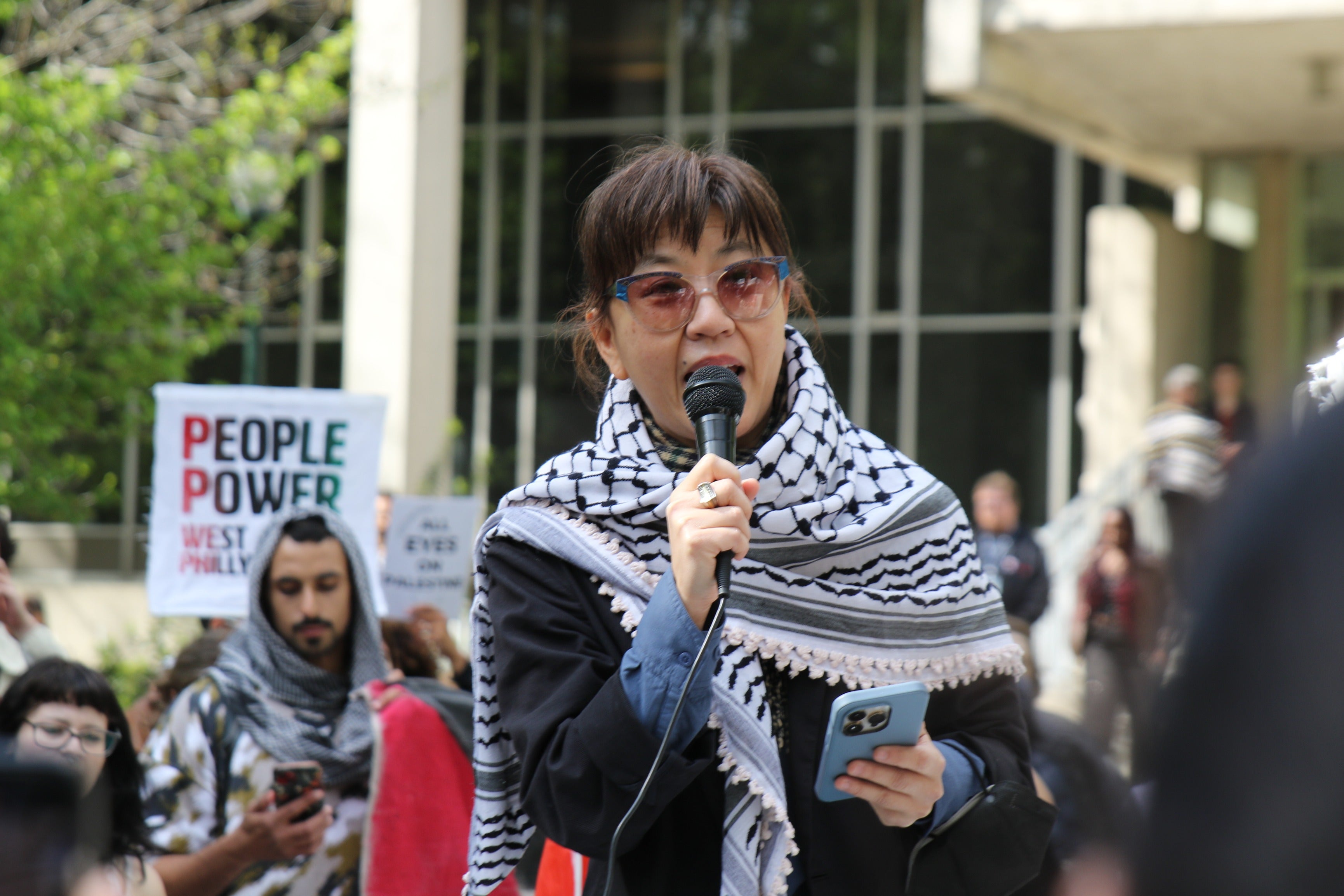
“We condemn Penn’s administration for failing to demonstrate accountability or care towards our campus community to honor the university’s guidelines on open expression, now used as an instrument of suppression,” Yang said during a speech delivered on top of the Split Button, an art installation on campus. “We wish to invest the University’s endowment ethically.”
In a statement to WHYY News, a spokesperson said Penn is closely monitoring the encampment and it respects the rights of students to demonstrate peacefully.
‘Will not stop, we will not rest’
The afternoon demonstrations in Philadelphia began at varying locations and at staggered times but ultimately combined on Market Street, marching from City Hall to University City.
Protesters carried signs that read “Occupation is the source of violence. End the occupation” and “Why are we afraid to talk about Gaza.” Demonstrators could be heard chanting, “Disclose, divest, we will not stop, we will not rest” and “the students united will never be divided.”
Flyers were dispersed at Penn calling for the restoration of faculty governance. Associate professor Dagmawi Woubshet, who is also a member of Penn Faculty for Justice in Palestine, outlined the demands from faculty present at the protest: the university’s disclosure of its investment in Israel, divestment from companies and academic institutions engaged in the war and the protection and support of Palestinian students and their allies.
Last week, Penn revoked the registered status of Penn Students Against the Occupation of Palestine.
“I’m deeply moved — deeply, deeply moved — by the action that our students have taken,” Woubshet said. “I think it ought to be celebrated. They’ve shown us what it means to be an ethically principled citizen of an academic community.”
Another Penn professor, Eve Troutt Powell, said Penn’s involvement with Israeli investments, specifically Ghost Robotics, is “scholasticide.”
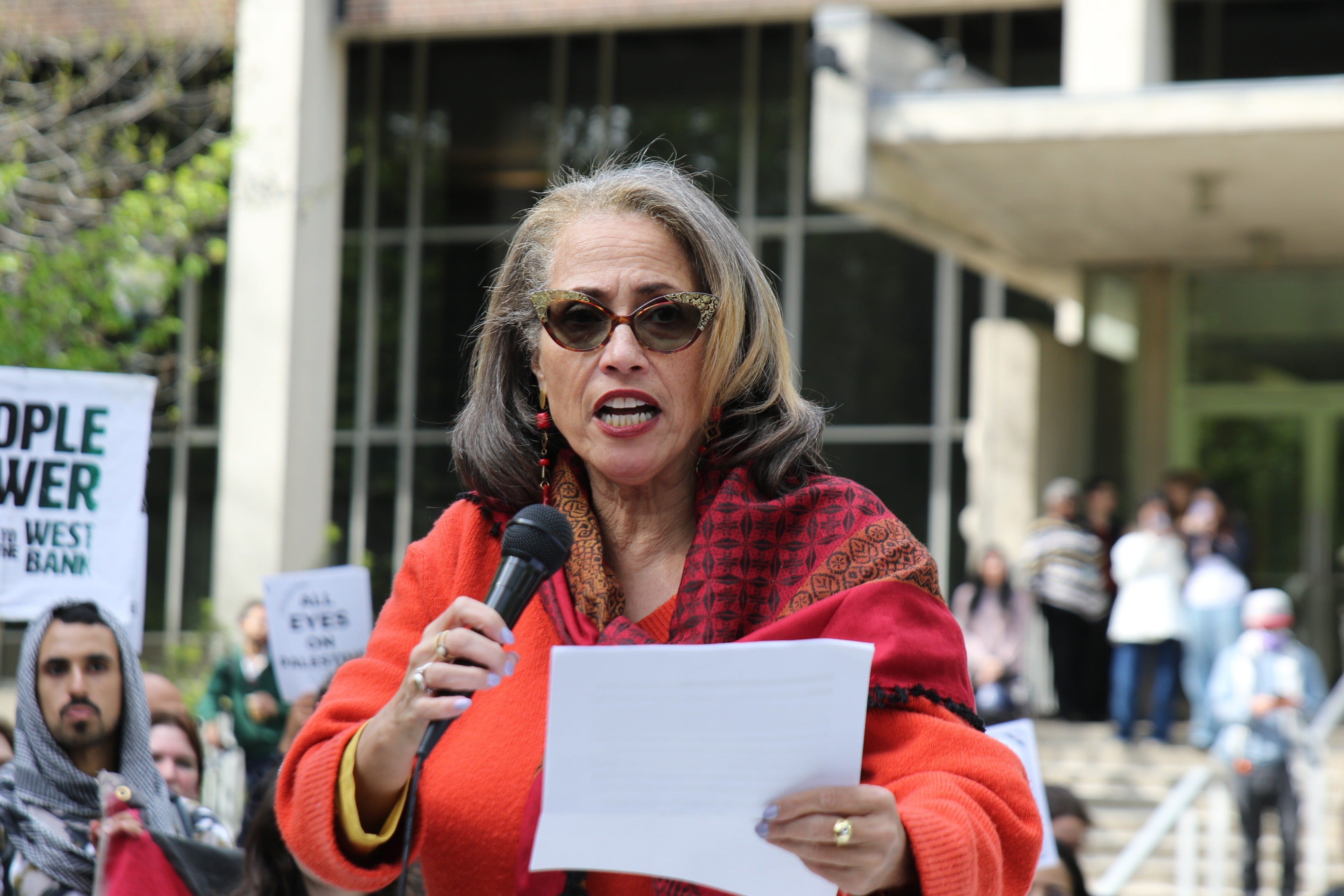
“I’ve devoted 18 years of my life to this place, that’s why I’m protesting,” Powell said. “Oh, University of Pennsylvania — to urge us all — to use this place and its incredible resources of knowledge, production for peace, for truth, for scholarship, for life. Not to make killer robots.”
Cece, a Palestinian student who did not provide her last name, said Palestinian students have become targets of racism and doxing on Penn’s campus. She said this has fueled discrimination against Palestinian, Muslim and Arab students.
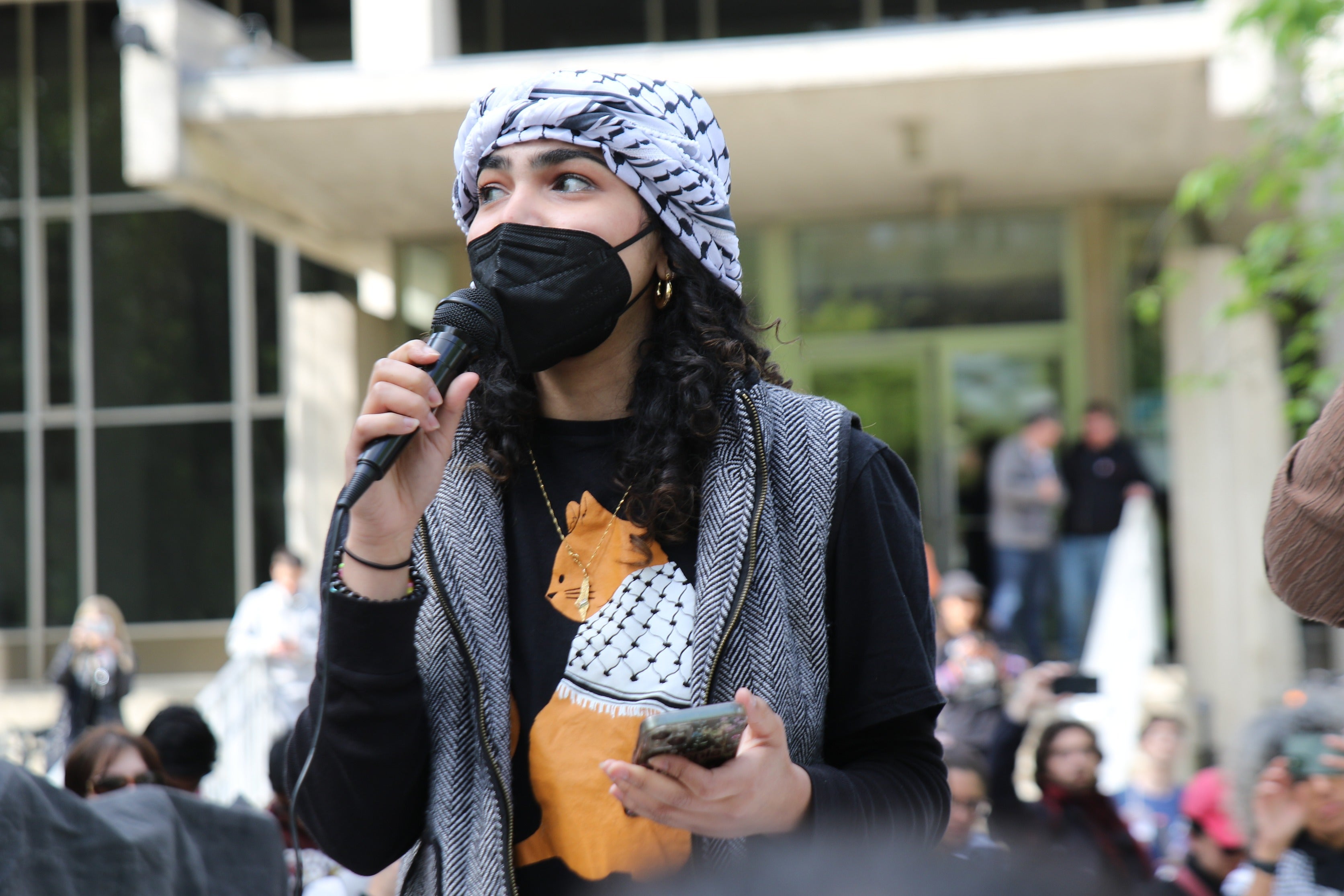
“Since October 7, we have received dozens of emails offering support for Jewish students, action plans have been implemented to fight off anti-Semitism, and police officers assigned to protect Jewish communities on campus,” she said. “What makes us less deserving of that protection?”
“Don’t let your dedication to this movement slow down,” Cece encouraged others. “Don’t stop shouting for ceasefire. Don’t stop holding your families and friends and organizations accountable for their compliance in genocide. Stand by what is right, chain yourself to it if you have to.”
The university did not immediately respond to WHYY News’ request for comment.
A swell of campus protests, and mass arrests
In recent days, the U.S. has seen a groundswell of campus protests in support of a permanent ceasefire. Demonstrations have ended with arrests at Columbia University, Yale and New York University. Columbia also announced classes would meet remotely in an attempt to “deescalate the rancor.”
Tense protests broke out at the University of Southern California and the University of Texas on Wednesday, prompting a strong police response and dozens of arrests on the campuses. Boston police also broke up an encampment at Emerson College early Thursday morning, arresting over 100 protesters in the process.
During the Jewish Sabbath and the Simchat Torah holiday on Oct. 7, attacks led by Hamas militants, including one at a music festival, resulted in the deaths of roughly 1,200 Israelis and hostages being taken.
On Wednesday, the Gaza Health Ministry said the overall Palestinian death toll from the war reached at least 34,262, with another 77,229 reported injuries. The Israeli military says it has killed some 12,000 militants. The head of Israel’s military intelligence directorate resigned on Monday over failure to prevent the Oct. 7 attacks.
President Joe Biden signed a $95 billion military aid package for Ukraine, Israel and Taiwan and reiterated his strong backing for Israel, citing Iran’s recent air attack on Israel earlier this month. Later, Israel retaliated with a series of missile strikes.
Biden noted that the bill includes $9 billion for humanitarian assistance worldwide, including $1 billion for Gaza. The assistance for Ukraine, totaling $60.8 billion, accounts for nearly two-thirds of the total.
Concerns over antisemitism and reports of anti-Muslim bias have increased since the Israel-Hamas war began.

Get daily updates from WHYY News!
WHYY is your source for fact-based, in-depth journalism and information. As a nonprofit organization, we rely on financial support from readers like you. Please give today.


